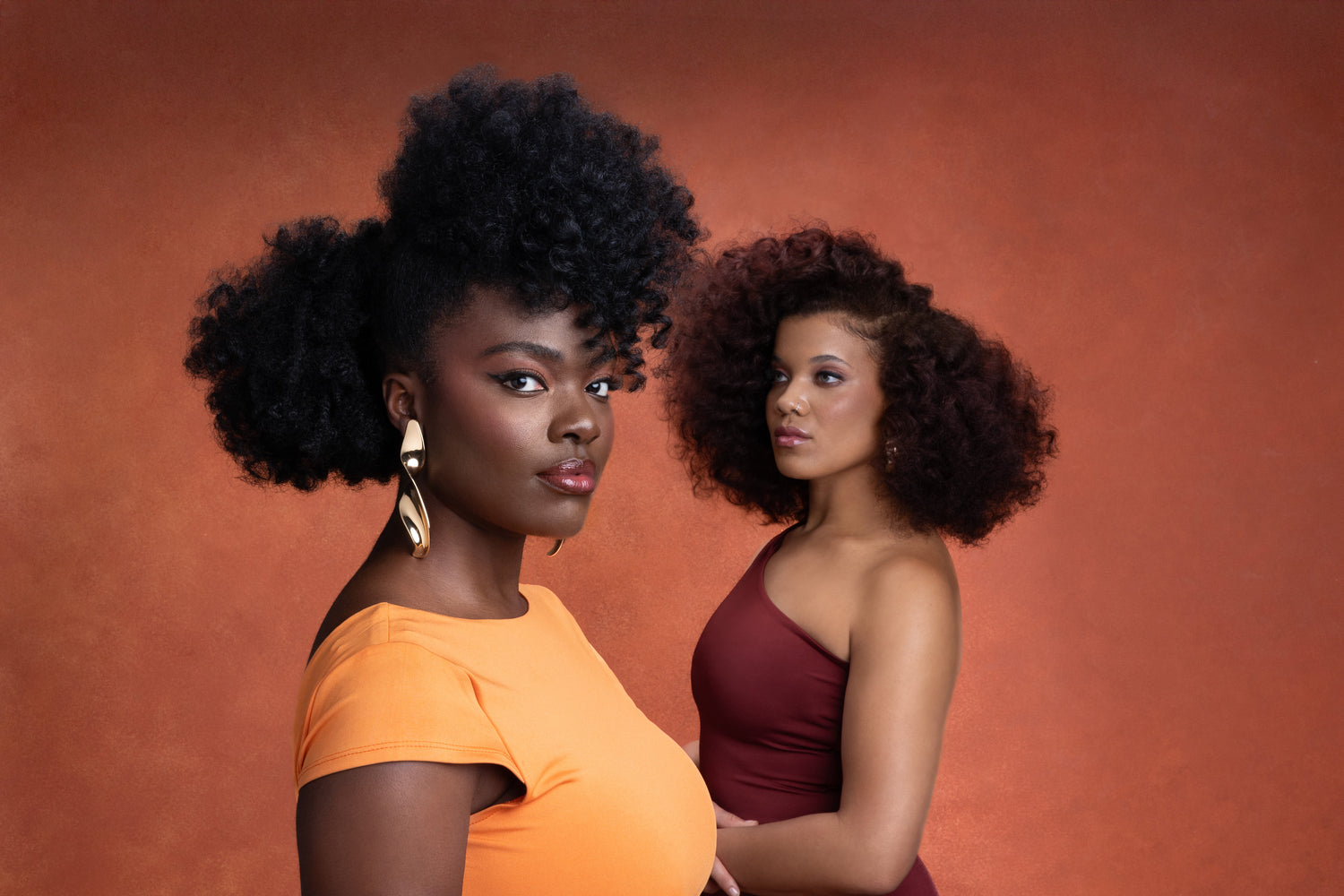Over the last two years around the world, women with Afro hair have been horrified to find out that 80% of black hair products on the market contain harmful ingredients. These toxins have proven links to a wide array of diseases, which are prevalent in the black community.
While developing the Afrocenchix product range, Joycelyn and Rachael purposefully chose natural ingredients that are beneficial to Afro hair, are gentle and safe to use.
In an effort to further educate and protect our community from such health hazards, we have produced a series of blog posts dedicated to learning about ingredients in Afro hair products.
We are very intentional about the ingredients we use.
You've probably seen "No sulphates, parabens, silicones or phthalates" on product labels. But what's all the fuss about? We've explained below.
What are sulphates?
Sulphates are cleansing agents that remove oil and build-up left on the hair and scalp from styling products. They are a large group of ingredients that are used in skincare, haircare and household cleaning products. Sodium Lauryl Sulphate is most frequently used in shampoos and is responsible for foaming action.
Why we avoid them
Sodium Lauryl Sulfate is sensitising and can cause skin irritation especially for eczema sufferers. It is extremely drying on afro hair as it strips the hair of its natural oils.
What we use instead
There are natural cleansing agents such as cocamidopropyl betaine, cocamidopropyl hydroxysultaine, sodium cocoyl isethionate and cocamidopropylamine oxide that do a great job of cleaning hair without stripping it of oils.
We use cocamidopropyl betaine in our shampoo Swish to help afro hair retain its moisture.

What are parabens?
Parabens are chemicals that are used as preservatives to stabilise formulas and stop the growth of mold, fungi and harmful pathogens. There are different types such as butylparaben, isobutylparaben, propylparaben, methylparaben, and ethylparaben.
They are commonly found in shampoos, conditioners and lotions — anything water-based needs a preservative to prevent it from growing mould.
Why we avoid them
Parabens are known to cause skin and eye irritation and have been related to endocrine disruption, developmental and reproductive toxicity. They can also mimic the hormone estrogen and have been linked to increased growth of breast cancer cells.

What we use instead
Many natural and organic cosmetics manufacturers have found effective alternatives to parabens to prevent microbial growth in personal care products.
We opt for an environmentally friendly blend of organic acid preservatives in our Smooth, Swish and Sheen.
What are silicones?
The types of silicones used in hair care products are supported by scientific research and are considered safe. There are many variants of silicones used in hair and skin care for protection against moisture loss. High-grade silicones allow for nutrients and moisture to penetrate the hair shaft, however, lower grade silicones tend to build up faster.
Why we avoid them
Silicones are not natural sealants. The shine that they give is synthetic and results from the effect of plastic. Silicones can make afro hair appear dull and lifeless with prolonged use due to build-up which weighs hair down. They can hold dirt and prevent moisture absorption which can lead to weakened afro hair.
What we use instead
Wheatgerm oil, stearic acid are good alternatives to silicones. We use wheatgerm oil in Seal which has a similar feel to silicones but is beneficial to nourishing and smoothing afro hair.
What are phthalates?
Phthalates are chemicals that are widely used in scented products to help the fragrance linger. They are usually incorporated into "fragrance" on an ingredient list so you won't see them on the back of your products. Phthalates that were considered potentially harmful have been banned by the EU.
Why we avoid them
DEP, DBP, DEHP are not considered to be harmful and are still found in hair care products, colour cosmetics, fragranced lotions, body washes, nail polish and industrial products.
Phthalates have however been linked to endocrine disruption, developmental and reproductive toxicity, and cancer. Although they have been banned from EU cosmetics, they are commonly found in products made in the United States.
What we use instead
Phalatate free alternatives include citrates, sebacates, adipates, and phosphates. We use essential oils for their benefits to Afro hair but they also happen to double up as our distinct natural scent throughout our range. 
Related articles:
Study on afro hair products containing chemicals
Risky chemicals in afro hair care products
The ultimate guide to afro hair care

